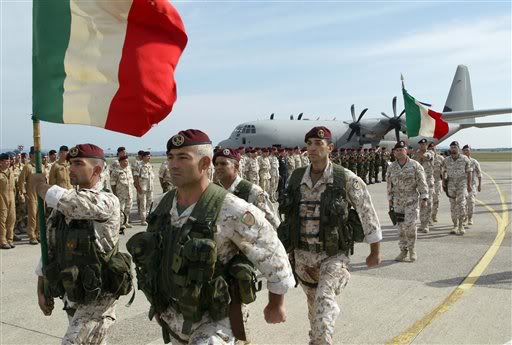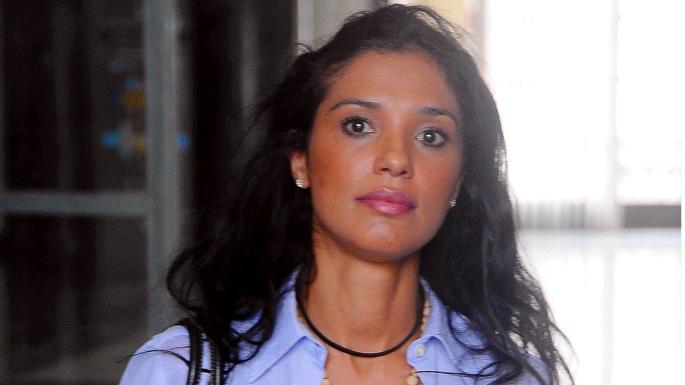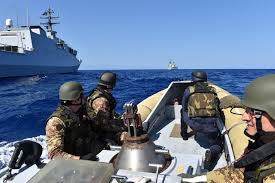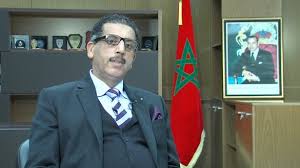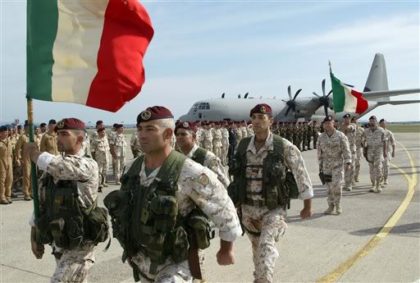 Italian Prime Minister Paolo Gentiloni is to ask the Parliament’s permission to redeploy troops currently stationed in Iraq to Niger where terrorist groups are increasingly engaging in human trafficking, contributing to the surge of illegal immigration in the Mediterranean region.
Italian Prime Minister Paolo Gentiloni is to ask the Parliament’s permission to redeploy troops currently stationed in Iraq to Niger where terrorist groups are increasingly engaging in human trafficking, contributing to the surge of illegal immigration in the Mediterranean region.
Gentiloni said Italy’s 1,400-strong military force, present in Iraq, could now be reduced after victories against Islamic militants and instead deployed in the Sahel region of West Africa.
“We have to continue to work, concentrating our attention and energies on the threat of human trafficking and terrorism in the Sahel,” he said aboard the Italian ship Etna used in the European Union’s “Sophia” operation to counter people smuggling in the Mediterranean.
“For this reason, part of our forces in Iraq will be deployed to Niger in coming months – this is the proposal the government will make to parliament,” Gentiloni said.
Newspaper Il Fatto Quotidiano wrote on Sunday that the Italian contingent in Niger would be “at least 470” as part of a commitment made to French President Emmanuel Macron to back the G5 counterterrorism Sahel force, which includes the armies of Mali, Mauritania, Niger, Burkina Faso and Chad.
The force also aims at countering radicalization and human trafficking, two major threats to stability and security in the impoverished Sahel region, where Al Qaeda and associated groups have a significant presence, while the Islamic State terror group (ISIS) also appears to be staking a claim in the volatile region.
The European Union has promised a €50 million support for the G5 force, with diplomacy chief Federica Mogherini citing stability of the Sahel region as “crucial not only for Africa but also for Europe.”
Gulf states, Saudi Arabia and the UAE have pledged $100 million and $30 million respectively in support of the G5 force.
The US for its part pledged $60 million in support of the UN-backed counterterrorism force which has 5000 soldiers with a command in Mali.
Each African country has pledged €10 million euros, France promised €8 million and the Netherlands pledged €5 million.
The force needs 250 million euros to get going, with the cost eventually rising to 400 million, French officials say.
